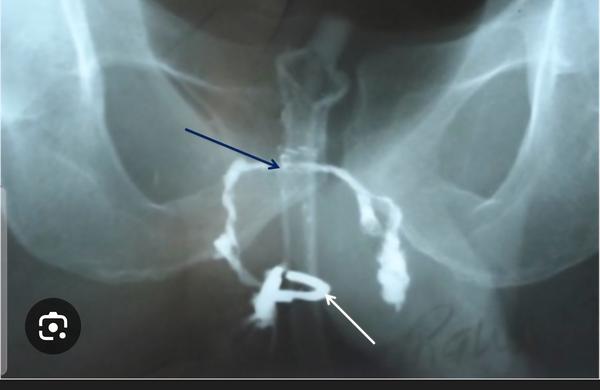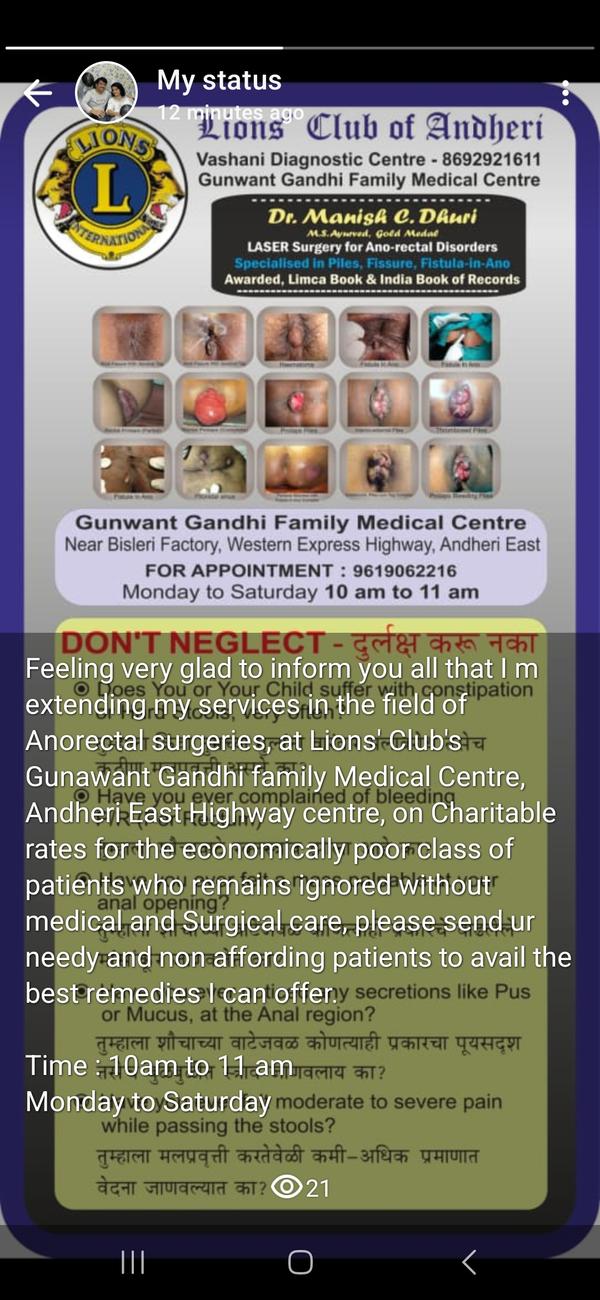Treatment For Rectal Polyps
INR 1200
*What are Rectal Polyps?*Rectal polyps are growths on the inner lining of the rectum, which is part of the large intestine. They can be benign (non-cancerous) or precancerous, and some types can develop into colorectal cancer over time.*Types of Rectal Polyps*1. Adenomatous polyps: These polyps have the potential to become cancerous.2. Hyperplastic polyps: These polyps are usually benign and small.3. Serrated polyps: These polyps can be precancerous.*Symptoms*1. Rectal bleeding or blood in stool2. Changes in bowel habits3. Abdominal pain or discomfort4. Iron deficiency anemia*Treatment Options*1. Polyp removal: During a colonoscopy, polyps can be removed using various techniques.2. Surgery: In some cases, surgical removal of the polyp or affected portion of the rectum may be necessary.*What to Expect from a Rectal Polyp Surgeon*1. Accurate diagnosis: A thorough examination, including colonoscopy, to determine the type and severity of the polyp.2. Personalized treatment plan: A tailored plan to address the individual's specific needs and condition.3. Minimally invasive procedures: Techniques to minimize scarring and promote faster healing.4. Post-operative care: Guidance on recovery, follow-up appointments, and surveillance for future polyps.*Tips for Finding a Qualified Rectal Polyp Surgeon*1. Check credentials: Ensure the surgeon is board-certified and experienced in treating rectal polyps.2. Read reviews: Research online reviews and testimonials from previous patients.3. Ask questions: Discuss treatment options, risks, and expected outcomes with the surgeon.If you have rectal polyps, feel free to consult with me for proper diagnosis and treatment. Regular screenings and follow-up care can help prevent complications and detect any potential issues early.
READ MORE









